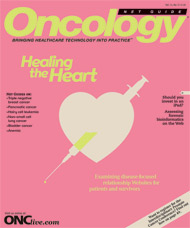Forensic bioinformatics: A novel and important use of the Web
The explosion of data available though analyses of genetic information on malignant cell lines, human cancer specimens, and �normal tissue� has revolutionized scientific exploration into the causes of cancer, and has helped us understand tumor aggressiveness and why certain cancers are resistant to treatment while others are sensitive to a wide spectrum of anti-neoplastic drug regimens.
The explosion of data available though analyses of genetic information on malignant cell lines, human cancer specimens, and “normal tissue” has revolutionized scientific exploration into the causes of cancer, and has helped us understand tumor aggressiveness and why certain cancers are resistant to treatment while others are sensitive to a wide spectrum of anti-neoplastic drug regimens. Further, rapidly evolving data demonstrate in a number of settings that specific molecular profi les of individual tumors can be quite useful in selecting a particular management approach (eg, HER2 over-expression in breast cancer predicting for the utility of trastuzumab) or in deciding whether to administer a class of agents (eg, documented presence of a KRAS mutation in metastatic colon cancer revealing the absence of biological and clinical activity for inhibitors of the epidermal growth factor receptor [EGFR]).
Increasingly complex genomic and proteomic patterns within individual cancers are being examined, and highly intricate and remarkably sophisticated bioinformatics strategies are being employed to defi ne specific molecular “signatures” that can be used for prognostic purposes or to select specific treatment regimens predicted by these profiles to be of genuine clinical value. But how can clinicians realistically be expected to understand these extremely elaborate analyses? One might even ask how equipped are regulatory agencies to evaluate in detail the claims (for marketing purposes) that a particular genomic pattern is acceptably reproducible and predictive of a well- characterized event or clinical outcome?
Assistance in dealing with these highly relevant issues appears to be on the horizon. A new term, “forensic bioinformatics,” has been coined to describe the activities of a small group of experts in the extremely complicated and rapidly evolving field of bioinformatics who have elected to serve as independent reviewers of reports of clinical associations involving analyses of molecular data.
This effort has been substantially assisted by the voluntary and sometimes obligatory submission of the original raw data used in these reports into Web-based repositories, permitting subsequent re-analysis by the independent bioinformaticians. Similarly, justifi cations for disagreement with the original report, or re-interpretation of the findings with alternative explanations provided,are openly displayed online for anyone with an understanding of the issues to review.
This innovative form of scientifi c interchange and debate is a truly exciting and most welcome development. Importantly, there should be no inherent assumption in this exercise that the original report and analysis is wrong, seriously fl awed, or that the investigators were sloppy in their work if a negative critique of the research is provided. Conversely, it would appear to be inappropriate for any group reporting these associations between clinical outcomes and complex biological processes that may
ultimately affect patient welfare to challenge either the wisdom of the concept of truly independent data review or the associated statement that even genuinely excellent investigative efforts can be improved.
We should be grateful to the individuals and groups with expertise in the area of bioinformatics for their important contribution to ensure the quality of clinically relevant cancer research and the safety of our patients.
Maurie Markman, MD, is editor-in-chief of Oncology Net Guide and vice president of clinical research for University of Texas MD Anderson Cancer Center in Houston, Texas.
